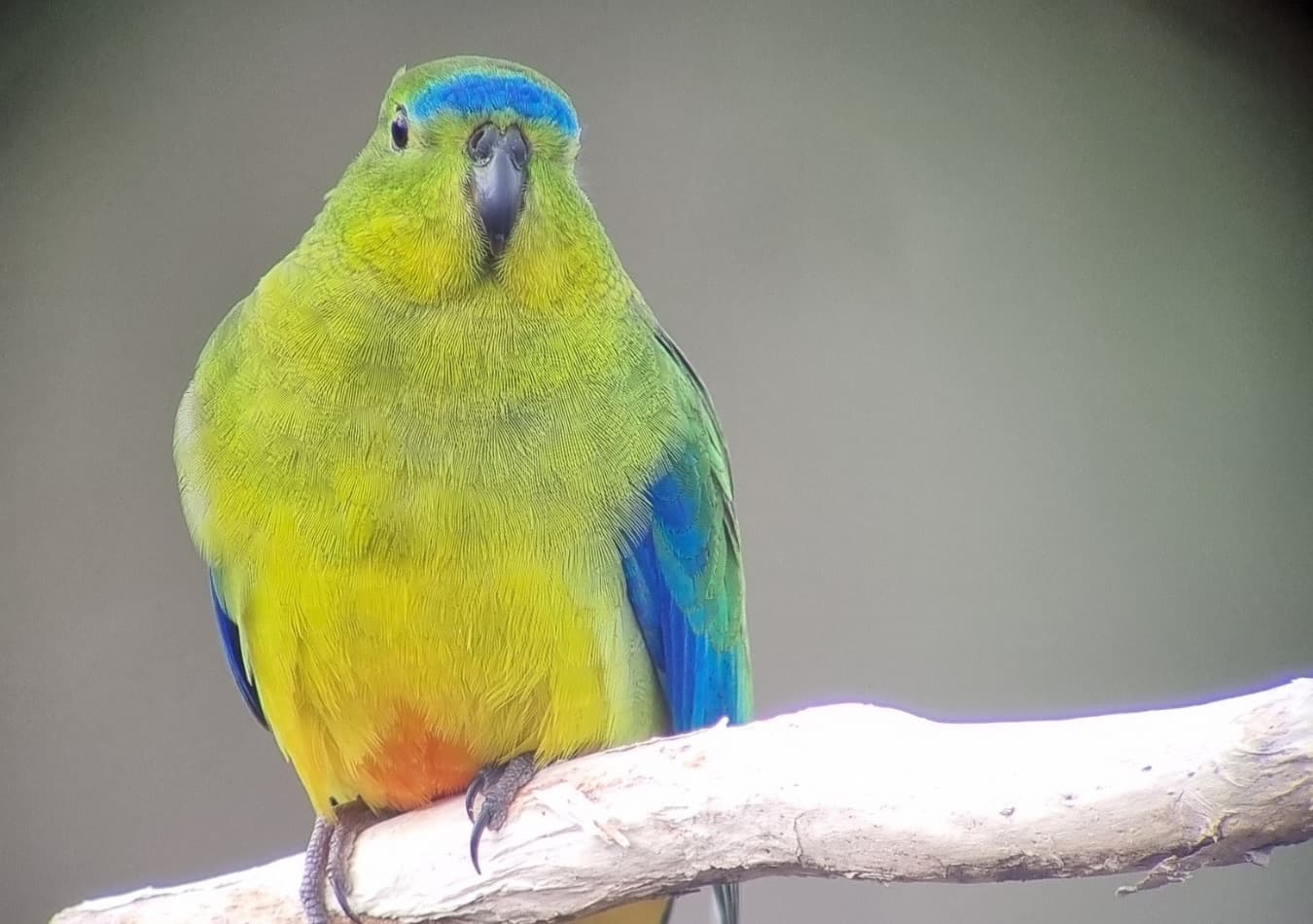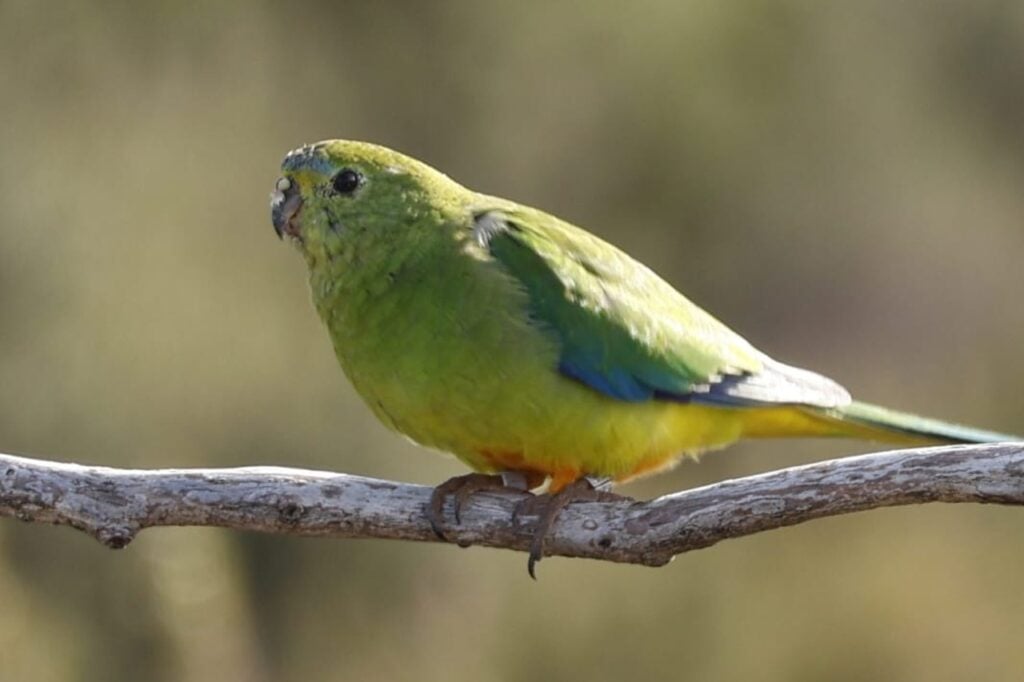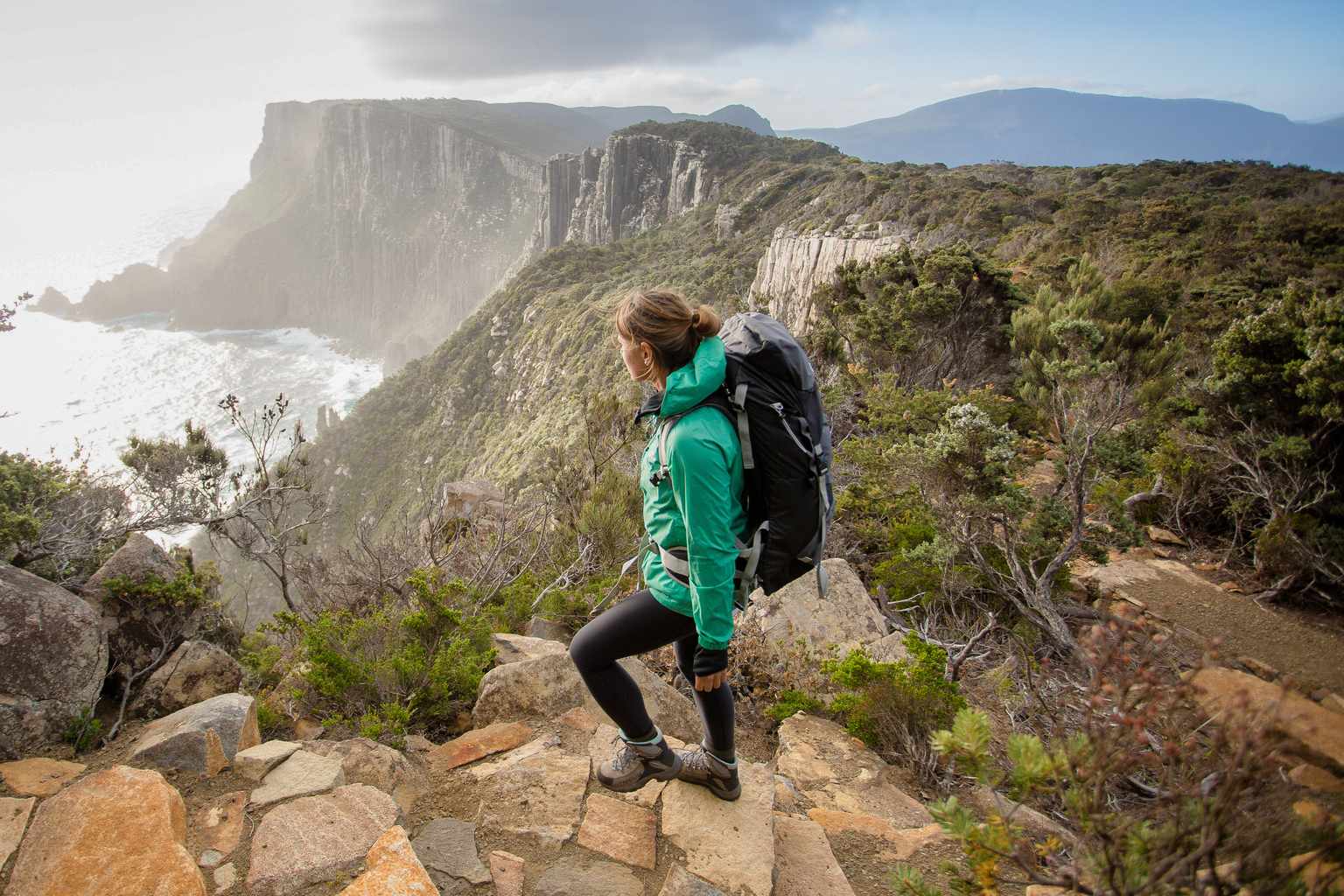Six orange-bellied parrots have returned to their Melaleuca breeding grounds in southwest Tasmania, marking the start of the 2025-26 season.
Five of the returning birds were wild-born, including a six-year-old female. One was captive-bred and released into the wild.
The returns come after a migration tracking project revealed new insights into the species’ remarkable journey across the Bass Strait.
Tracking data from 2024 showed one bird covered more than 320 kilometres in five and a half hours, flying at an average speed of 58km/h.

Most long-distance flights happened at night. Birds typically left Melaleuca around sunset and arrived in north-west Tasmania or King Island early the next morning.
Some parrots stopped over for weeks or months before continuing to Victoria. A small number stayed in Tasmania until mid-June.

Volunteers from the parrot program confirmed the six arrivals despite wet and wild conditions at the remote site.
Staff have refreshed nest boxes ahead of breeding season.
Environment Minister Madeleine Ogilvie welcomed the returns.
“It is always exciting seeing these beautiful parrots make their safe return following their northern winter migration,” she said.

Record numbers returned last season. An annual census in December will reveal this year’s totals.
The captive breeding program at Five Mile Beach has paired up 40 breeding pairs, the largest number since 2020-21.
Wildlife officers have already found the season’s first egg.
“Our efforts, particularly the release of captive-bred birds in the breeding range, are essential to preventing the extinction of this critically endangered species,” Ogilvie said.







